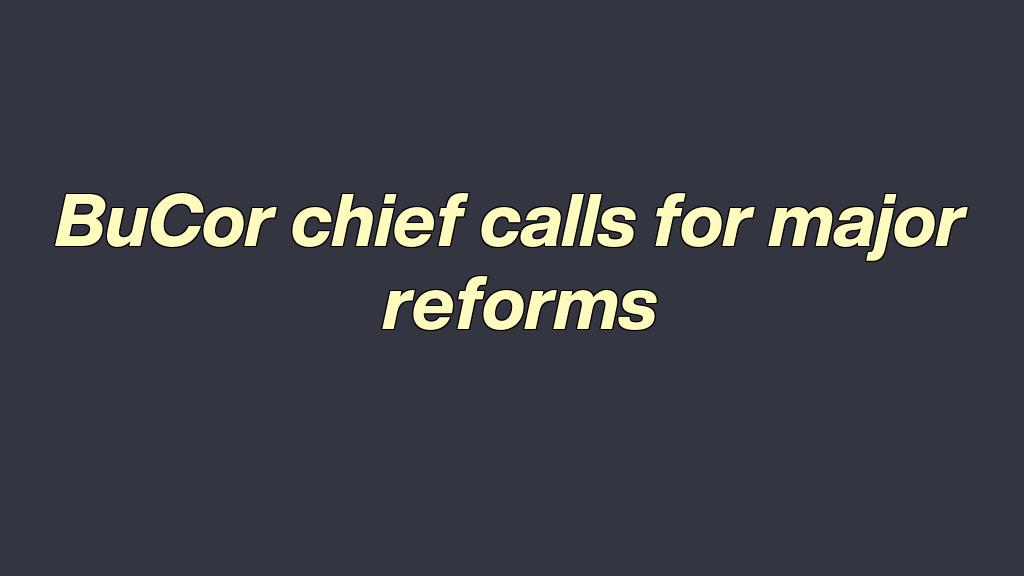THE Bureau of Corrections (BuCor) is pushing for legislation to reform the country’s penal system, including the creation of a unified corrections department and a law granting medical parole for elderly and ailing inmates.
BuCor Director General Gregorio Catapang Jr. outlined the proposals, which he described as a significant shift in the management of the nation’s prisons.
At the center of the agenda is the establishment of a “unified penology and correctional system,” which would consolidate all jail and prison management under a single department, replacing the current fragmented structure.
BuCor is also advocating for a medical parole law, allowing for the compassionate release of persons deprived of liberty (PDLs) who are 70 years or older, or who suffer from severe illnesses, so they can be cared for by their families.
BuCor chief calls for major reforms
Another key proposal is the creation of a “Corrections and Land Development Authority” to manage and develop BuCor’s extensive land assets — referred to by Catapang as “sleeping giants” — to generate funds for modernization and operational needs.
“These efforts are part of BuCor’s broader mission to become a relevant, sustainable, and respected institution,” Catapang said.
He added that Justice Secretary Jesus Crispin Remulla and Interior Secretary Jonvic Remulla have a “verbal agreement” to begin transferring control to a unified system.
Since June 2022, BuCor has overseen the release of over 22,000 PDLs, surpassing previous administrations’ accomplishments, Catapang said. He attributed this milestone to improved coordination among the Supreme Court, the executive, and legislative branches, which ensured the proper application of the Good Conduct Time Allowance (GCTA) — a mechanism that can significantly reduce sentences.
A primary aim of the releases is to decongest prisons. Congestion at the New Bilibid Prison (NBP) in Muntinlupa City has dropped from 313 percent in 2020 to 224 percent today.

The NBP inmate population has been reduced from 23,000 to 22,000 through releases and transfers to other penal colonies.
To further ease overcrowding, BuCor is relocating PDLs to its penal farms, including the 29,000-hectare Iwahig Penal Colony and an 8,000-hectare facility in Mindoro.
Catapang revealed plans to close down the NBP by 2028.
He noted that BuCor’s budget has doubled from P5 billion to P10 billion since he assumed office, but acknowledged it is still not enough.
To fill the gap, the agency has Joint Venture Agreements with private entities to build new dormitories, with ongoing projects in Iwahig, Sablayan, Davao, and Leyte.
Catapang also wants to make BuCor self-sustaining by developing its vast land assets, including the 367-hectare NBP property, which could be converted into a commercial zone.
Plans also include establishing special economic zones within penal colonies where inmates can work.
Rehabilitation remains a focus, with programs including drug treatment, education, food subsidies, and post-release employment, supported through partnerships with private companies such as San Miguel Corporation., This news data comes from:http://dey.052298.com
- Nartatez vows fair assignments, better resource management as new PNP chief
- MMDA prepares for PH hosting of FIVB
- Former Bulacan district engineer admits going to casinos
- Marcos opens WorldSkills Asean competition
- Dizon asks DOJ to issue immigration lookout bulletin to 26 DPWH officials and contractors
- Documents show New Zealand unease over Chinese warships in South Pacific
- South Africa's most vulnerable struggle to find HIV medication after US aid cuts
- Malacañang hits back at VP Duterte's criticism on flood scam probe
- Zelenskyy says Russia trying to 'wriggle out' of peace talks
- Heavy rain falls in parts of Southeast Asia after tropical storm blows into Vietnam